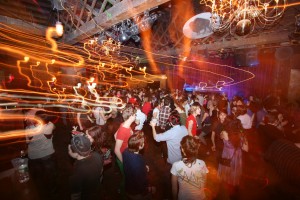 Favorite local bars and pubs collectively have a certain set of connotations to them. Probably best immortalized by the long-running television show Cheers, bars are known as the most iconic meeting place of the societal sect characterized as “the salt of the earth.” Bars and pubs provide a casual meeting place for a wide variety of adults, and are a fixture even in the smallest of secular towns and communities everywhere in Western culture.
Favorite local bars and pubs collectively have a certain set of connotations to them. Probably best immortalized by the long-running television show Cheers, bars are known as the most iconic meeting place of the societal sect characterized as “the salt of the earth.” Bars and pubs provide a casual meeting place for a wide variety of adults, and are a fixture even in the smallest of secular towns and communities everywhere in Western culture.
While bars and pubs are an important cultural tradition, they create certain elements of societal detriment as well. Alcoholism is the most widespread form of addiction in the world. Alcohol consumption is one of humanity’s oldest traditions, and alcohol addiction has been present essentially since the start of this tradition. There is no way of controlling the problem of alcoholism because the consumption of it is basically a universal human right to adults. However, it is still a dire necessity to continue efforts to embrace a healthy amount of moderation as a society.
One only needs to observe the scene within a favorite local bar, pub or tavern to know that social drinking has a light and a dark side. Upon first glance, you may think you are looking at the happiest people in the city. Conversations are warm and gregarious. Laughter fills the room from front to back. It is obvious that happy meetings, new friendships and long awaited reunions are taking place through out the establishment. But upon closer inspection, one will begin to observe the darker under currents taking place amid the happiness, particularly as you move closer to the bar or lounge area, and move later into the night. Suddenly, you will observe heated conversations, slurred, angry words, dangerous level of clumsiness and other signs of extreme intoxication. Most people would agree that this description matches every local bar they have been to.

